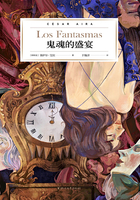The brothers Cheeryble make various declarations for themselves and others. Tim Linkinwater makes a declaration for himself S OME WEEKS had passed, and the first shock of these events had subsided. Madeline had been removed; Frank had been absent;and Nicholas and Kate had begun to try in good earnest to stifle their own regrets, and to live for each other and for their mother--who, poor lady, could in nowise be reconciled to this dull and altered state of affairs--when there came one evening, per favour of Mr Linkinwater, an invitation from the brothers to dinner on the next day but one: comprehending, not only Mrs Nickleby, Kate, and Nicholas, but little Miss La Creevy, who was most particularly mentioned.
`Now, my dears,' said Mrs Nickleby, when they had rendered becoming honour to the bidding, and Tim had taken his departure, `what does this mean?'
`What do you mean, mother?' asked Nicholas, smiling.
`I say, my dear,' rejoined that lady, with a face of unfathomable mystery, `what does this invitation to dinner mean,--what is its intention and object?'
`I conclude it means, that on such a day we are to eat and drink in their house, and that its intent and object is to confer pleasure upon us,' said Nicholas.
`And that's all you conclude it is, my dear?'
`I have not yet arrived at anything deeper, mother.'
`Then I'll just tell you one thing,' said Mrs Nickleby, you'll find yourself a little surprised; that's all. You may depend upon it that this means something besides dinner.'
`Tea and supper, perhaps,' suggested Nicholas.
`I wouldn't be absurd, my dear, if I were you,' replied Mrs Nickleby, in a lofty manner, `because it's not by any means becoming, and doesn't suit you at all. What I mean to say is, that the Mr Cheerybles don't ask us to dinner with all this ceremony for nothing. Never mind; wait and see.
You won't believe anything I say, of course. It's much better to wait;a great deal better; it's satisfactory to all parties, and there can be no disputing. All I say is, remember what I say now, and when I say I said so, don't say I didn't.'
With this stipulation, Mrs Nickleby, who was troubled, night and day, with a vision of a hot messenger tearing up to the door to announce that Nicholas had been taken into partnership, quitted that branch of the subject, and entered upon a new one.
`It's a very extraordinary thing,' she said, `a most extraordinary thing, that they should have invited Miss La Creevy. It quite astonishes me, upon my word it does. Of course it's very pleasant that she should be invited, very pleasant, and I have no doubt that she'll conduct herself extremely well; she always does. It's very gratifying to think that we should have been the means of introducing her into such society, and I'm quite glad of it--quite rejoiced--for she certainly is an exceedingly well-behaved and good-natured little person. I could wish that some friend would mention to her how very badly she has her cap trimmed, and what very preposterous bows those are, but of course that's impossible, and if she likes to make a fright of herself, no doubt she has a perfect right to do so. We never see ourselves -- never do, and never did -- and I suppose we never shall.'
This moral reflection reminding her of the necessity of being peculiarly smart on the occasion, so as to counterbalance Miss La Creevy, and be herself an effectual set-off and atonement, led Mrs Nickleby into a consultation with her daughter relative to certain ribbons, gloves, and trimmings: which, being a complicated question, and one of paramount importance, soon routed the previous one, and put it to flight.
The great day arriving, the good lady put herself under Kate's hands an hour or so after breakfast, and, dressing by easy stages, completed her toilette in sufficient time to allow of her daughter's ****** hers, which was very ******, and not very long, though so satisfactory that she had never appeared more charming or looked more lovely. Miss La Creevy, too, arrived with two bandboxes (whereof the bottoms fell out as they were handed from the coach) and something in a newspaper, which a gentleman had sat upon, coming down, and which was obliged to be ironed again, before it was fit for service. At last, everybody was dressed, including Nicholas, who had come home to fetch them, and they went away in a coach sent by the brothers for the purpose: Mrs Nickleby wondering very much what they would have for dinner, and cross-examining Nicholas as to the extent of his discoveries in the morning; whether he had smelt anything cooking at all like turtle, and if not, what he had smelt; and diversifying the conversation with reminiscences of dinners to which she had gone some twenty years ago, concerning which she particularised not only the dishes but the guests, in whom her hearers did not feel a very absorbing interest, as not one of them had ever chanced to hear their names before.
The old butler received them with profound respect and many smiles, and ushered them into the drawing-room, where they were received by the brothers with so much cordiality and kindness that Mrs Nickleby was quite in a flutter, and had scarcely presence of mind enough, even to patronise Miss La Creevy. Kate was still more affected by the reception: for, knowing that the brothers were acquainted with all that had passed between her and Frank, she felt her position a most delicate and trying one, and was trembling on the arm of Nicholas, when Mr Charles took her in his, and led her to another part of the room.
`Have you seen Madeline, my dear,' he said, `since she left your house?'
`No, sir!' replied Kate. `Not once.'
`And not heard from her, eh? Not heard from her?'
`I have only had one letter,' rejoined Kate, gently. `I thought she would not have forgotten me quite so soon.'















